Your cart is currently empty!
The First 1000 Days
The first 1000 days encompass the period from conception through pregnancy and the first two years of a child’s life. This crucial time frame is marked by rapid growth and development, with nutrition playing a central role in shaping both short-term outcomes and long-term health outcomes.
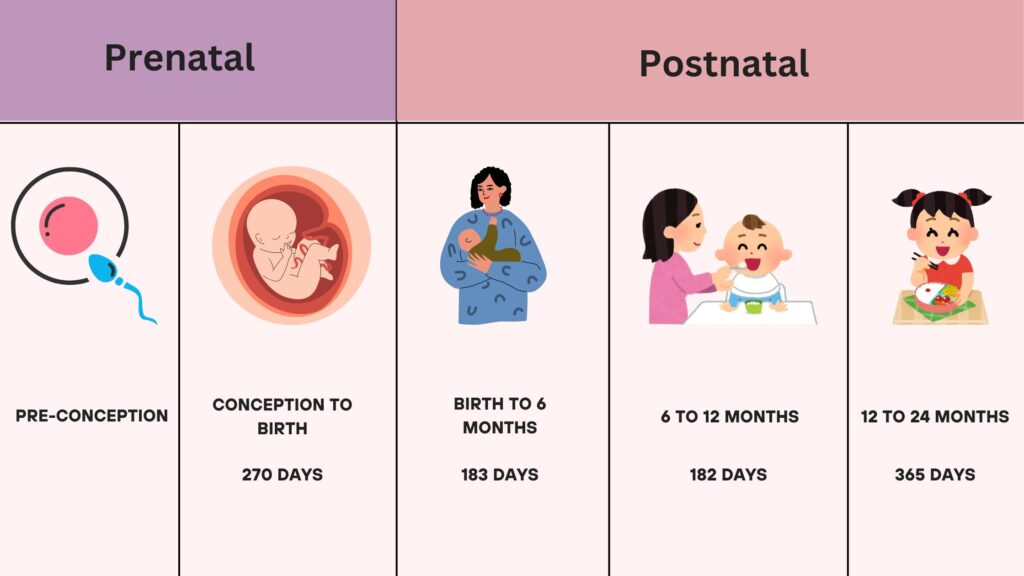
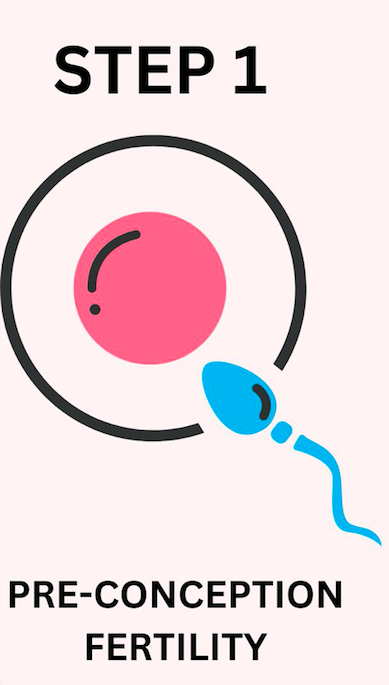
Pre-Conception Fertility
Fertility isn’t just about the moment of conception; it’s about the months leading up to it as well. During this preconception phase, both partners can take proactive steps to optimize their fertility health. From maintaining a balanced diet to managing stress and lifestyle factors, every choice matters in preparing for pregnancy.
Nutrition is a cornerstone of fertility health throughout the first 1000 days. Key nutrients like folate, iron, calcium, and omega-3 fatty acids support reproductive function and fetal development. By prioritizing a nutrient-rich diet, individuals can enhance their chances of conception and lay a strong foundation for a healthy pregnancy.
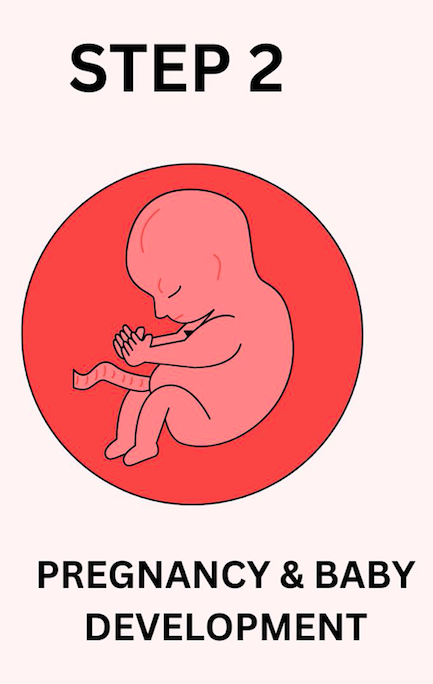
Pregnancy & Baby Development
Once pregnancy begins, proper nutrition becomes even more critical. The mother’s dietary choices directly impact the developing fetus, influencing everything from organ development to cognitive function. Certain nutrients play a crucial role in supporting maternal and fetal health. Folate, for example, is essential for preventing neural tube defects, while iron supports the production of red blood cells and prevents anemia. Other important nutrients include calcium, omega-3 fatty acids, vitamin D, and protein, all of which contribute to healthy fetal development and maternal well-being.
Eating a variety of nutrient-dense foods and staying hydrated are essential for supporting both maternal and fetal health during this transformative time.
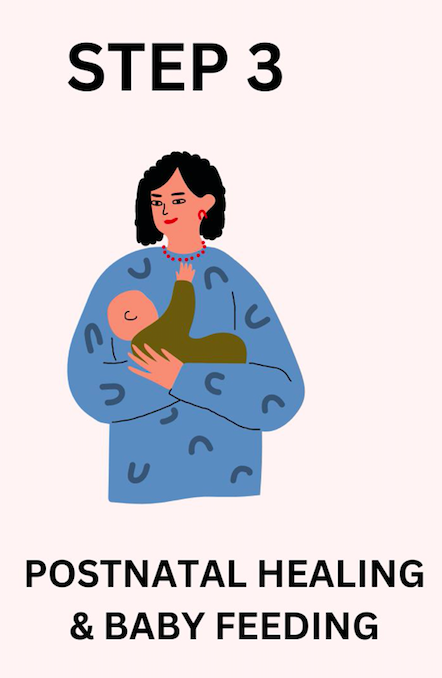
Postnatal Healing & Baby Feeding
The first 1000 days extend beyond birth into infancy and early childhood. Breastfeeding, if possible, provides unmatched nutrition and immune support for infants, promoting optimal growth and development. This time is also important to Nourish mum to ensure physical and mental recovery post birth. The postnatal period, often referred to as the “fourth trimester,” is a time of profound physical and emotional adjustment. Your body has undergone an incredible transformation during pregnancy and childbirth, and now it needs time and care to recover. Rest, proper nutrition, and gentle movement can support your body’s healing process and help you regain strength and vitality.
As you nourish your baby through breastfeeding, it’s essential to prioritize your own nutritional needs as well. Consuming a well-balanced diet rich in fruits, vegetables, whole grains, lean proteins, and healthy fats can help replenish your energy stores and support milk production. Stay hydrated by drinking plenty of water and herbal teas, and consider incorporating lactation-friendly foods like oats, fenugreek, and leafy greens into your meals.
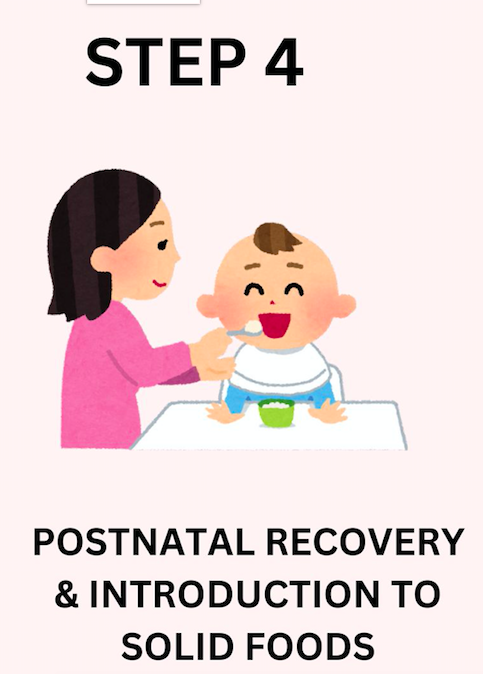
Postnatal Recovery & Introduction to Solid Foods
Around the age of six months, your baby will begin to show signs of readiness for solid foods. This exciting milestone marks the start of a new chapter in your baby’s development. Introducing a variety of nutritious foods early on can help establish healthy eating habits and support optimal growth and development. Introducing a variety of healthy foods during the complementary feeding period sets the stage for lifelong eating habits and reduces the risk of chronic diseases later in life.
When it comes to introducing solid foods, aim for nutrient-rich options that are gentle on your baby’s developing digestive system. Start with single-ingredient purees like mashed avocado, steamed sweet potato, or pureed fruits and vegetables. As your baby grows, gradually introduce a variety of textures and flavors to expand their palate and nutritional intake.
Introducing potential allergens, such as peanuts, eggs, dairy, and wheat, can be intimidating for parents. However, early introduction of allergenic foods, under the guidance of a pediatrician, can help reduce the risk of food allergies later in life. Start with small amounts and monitor for any signs of adverse reactions. As you navigate the postnatal period and the introduction to solid foods, remember that this journey is as much about nurturing yourselves as it is about nurturing your baby.
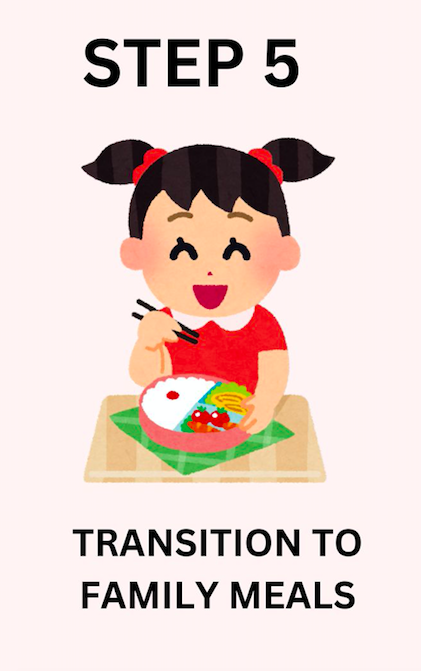
Transition to Family Meals
As your little one grows from a baby to a toddler, mealtime takes on a whole new dimension. Gone are the days of purees and high chairs – now it’s time to embrace the excitement of family meals together. When planning family meals, aim for a balance of familiar favorites and new foods to introduce variety and expand your toddler’s palate. Offer a variety of colors, textures, and flavors to keep mealtime interesting and enjoyable. Be patient and persistent – it may take several exposures before your toddler warms up to new foods, so keep offering them without pressure or coercion.
While you’re transitioning to family meals, consider adapting your menu to suit your toddler’s preferences and developmental stage. Offer foods that are easy for little hands to grasp and chew, such as bite-sized pieces of fruit, vegetables, and proteins. Provide a mix of textures, including soft and crunchy options, to stimulate your toddler’s senses and encourage exploration.
Leave a Reply